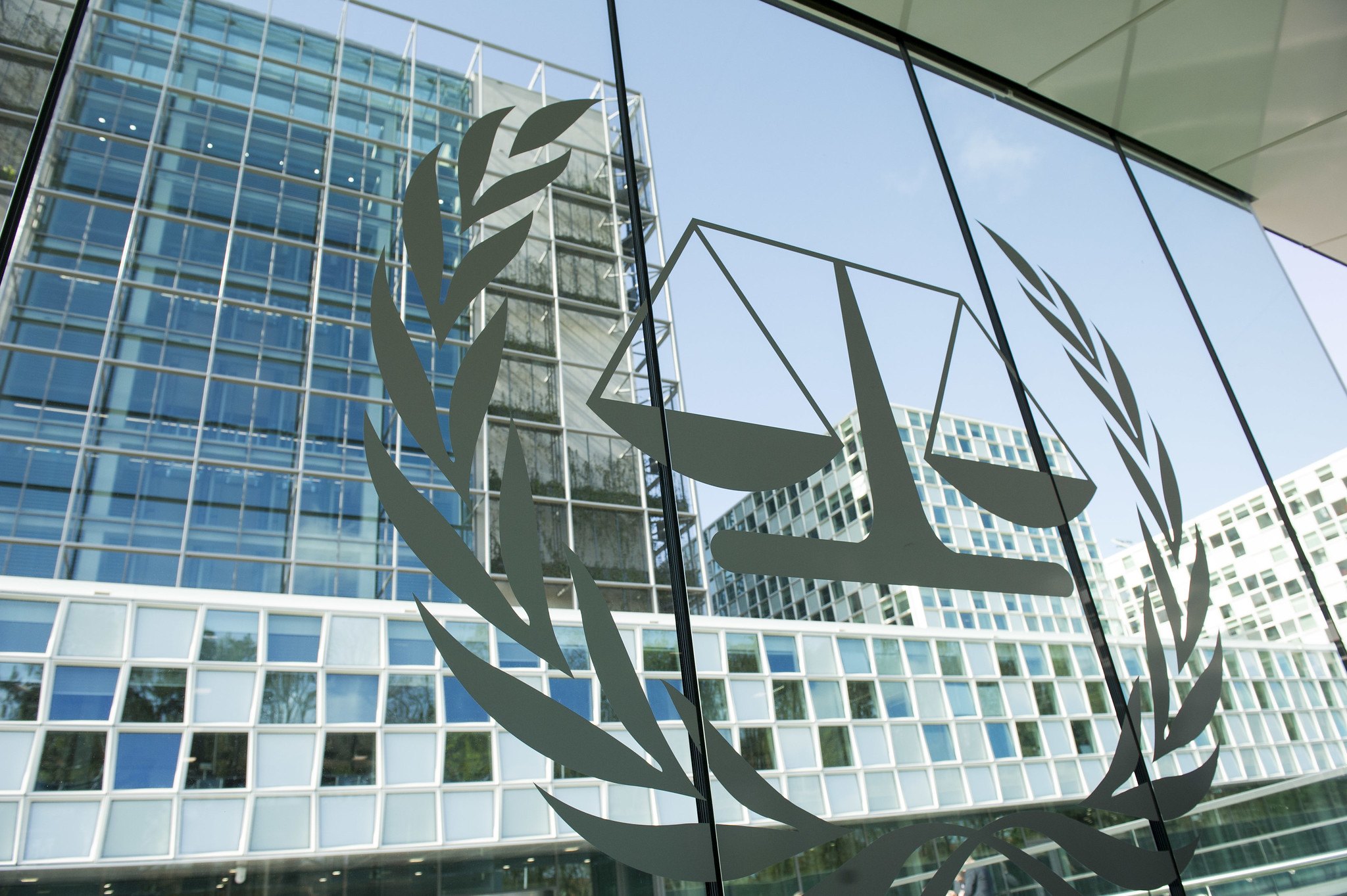New Reporting Offers a Glimpse Inside China’s Xinjiang Practices, Renewing Calls for a U.S. Response
Lawfare’s biweekly roundup of U.S.-China technology policy news.

Published by The Lawfare Institute
in Cooperation With

New Reporting on Xinjiang Detention and Surveillance Program
The New York Times on Nov. 16 published leaked Chinese Communist Party documents that provide a glimpse into the strategic thinking behind China’s sprawling “reeducation” and labor camps in Xinjiang. The government has detained more than 1 million Xinjiang residents—primarily Uighur Muslims—for alleged “religious extremism.” Beyond the detentions, China has employed a variety of controls—including checkpoints, armed police and plainclothes monitors, and surveillance technology—to track citizens in Xinjiang.
The newly released documents include internal speeches from President Xi Jinping who, after a 2014 trip to Xinjiang, told party officials that they should have “no mercy” as they sought to rid the region of extremist ideology. His comments followed a series of attacks by Uighur militants in Xinjiang, which helped to make 2014 a particularly violent year for the province. The leaked materials also shed light on pressure tactics used by higher-ups in the Chinese bureaucracy to induce compliance among local officials, who have sometimes been skeptical of the surveillance and detention program. The memos also include widely circulated instructions to police officers on how to speak to university students who, upon returning home from school, find their parents missing.
To date, China has not denied that the documents published by the New York Times are authentic. When asked about the revelations, though, one government spokesperson said Uighur policies were “purely China’s domestic affairs” and related to “fighting violence, terrorism and separatism”—not “ethnicity, religion or human rights.” China’s messaging strategy on Xinjiang has evolved over time as new evidence about its practices in the region has surfaced. Following a 2018 U.N. report on the camps, China denied that the camps existed. Later, as evidence mounted, China acknowledged the existence of the camps but said they were “humane job centers.” Last July, as criticism grew, China then said it had released most inmates from reeducation camps, though independent research suggests more than 1 million people remain detained as of November 2019.
New reporting has also provided insight into the sophisticated surveillance technology and data-management systems China employs in Xinjiang. In major cities, China has developed an “Integrated Joint Operations Platform,” which gathers data on residents using iris scanners, CCTV cameras with face and voice recognition, and DNA sampling. These data are then tied to residents’ online activity, banking information, and phone calls and text messages. Based on an algorithm preprogrammed by party officials, the system will flag for authorities behavior that the Chinese Communist Party considers suspicious—which can include something as simple as downloading Skype or WhatsApp. China has also experimented in Xinjiang with “emotional recognition technology,” which uses video surveillance to analyze citizens’ facial expressions in crowded environments. The technology is meant to improve crime prediction analytics, but experts have expressed doubts about its efficacy.
Beijing’s surveillance campaign has been deployed overseas as well. China has also used sophisticated cyberattacks to hack into the phones of Uighurs living abroad, and it has threatened violence against their family members still in China should they protest the government’s policy. Beijing has also used advanced hacking techniques to intercept text messages from an unnamed international telecommunications provider. The telecom hack reportedly sought to track messages related to intelligence, defense, and political movements at odds with China’s geopolitical interests. The Chinese government has also sought to overload international websites that contain information that opposes Beijing’s geopolitical interests, such that the websites run more slowly or even shut down. The technique—known as firing the “great cannon”—involves injecting malware onto insecure sites whenever a user based in China visits the site.
Recent reporting has prompted calls for a stronger U.S. government response to China’s Xinjiang policies. This ratchets up tensions at a time when China’s human rights practices in Hong Kong have already strained its relations with Washington. Following the New York Times’s most recent reporting, Sen. Robert Menendez of New Jersey wrote in a tweet that the documents leaked by the Times were “reprehensible,” and he called on the House of Representatives to join the Senate in passing the Uyghur Human Rights Policy Act. The legislation would require U.S. government committees to produce regular reports on the “reach” of U.S. media in Xinjiang, China’s treatment of Uighurs, the use of forced labor in the region and other human rights issues.
The U.S. has already blacklisted Chinese businesses and government organs operating in Xinjiang, but even before this latest reporting, many observers in the U.S. pushed the government to take more aggressive measures. Activists have pointed out that global businesses that source cotton from Xinjiang may be using material produced by forced labor. Human rights groups have also urged legislators to sanction Chinese officials for the Xinjiang policies under the Global Magnitsky Act.
As evidence about the Xinjiang camps has emerged, many of China’s neighbors in Central Asia have taken measures that reflect support for China’s policies. Kazakhstan has sought to silence news reporting about Xinjiang detention centers, even though the country is predominantly Muslim. Meanwhile, Kyrgyzstan has fined activists who have criticized China’s internment camps. This summer, Uzbekistan joined another 13 countries in signing a letter commending China for its “effective counter-terrorism and de-radicalization measures” in Xinjiang. This trend reflects China’s influence in the region and suggests China’s neighbors may refrain from criticizing the Communist Party’s Uighur practices even after this latest reporting.
In “Vote of Confidence” for the City, Alibaba Files for Stock Listing in Hong Kong
On Nov. 13, Alibaba filed paperwork for a secondary listing on the Stock Exchange of Hong Kong (SEHK), in which it plans to offer 12.5 million shares for public sale. The secondary listing will allow Alibaba to offer shares on the Hong Kong exchange, though Alibaba’s primary listing will remain in New York. Trading of the new SEHK shares is set to start on Nov. 26. Alibaba hopes that the Hong Kong offering will raise $13.4 billion, and sources close to the listing process report demand for its shares well in excess of this amount. If it proceeds according to plan, analysts expect the Hong Kong listing will be the largest cross-border secondary listing in history and Hong Kong’s largest share sale in nine years.
Alibaba had been considering a secondary listing on the SEHK as early as last May. In August, however, it put those plans on hold due to social unrest in Hong Kong and uncertainty surrounding the U.S.-China trade war. Alibaba’s November announcement about listing the company on SEHK reverses its August decision, even though protests continue to rage in Hong Kong.
Commentators have emphasized that the SEHK listing, which Alibaba’s leadership has called a “vote of confidence” in Hong Kong, will likely curry favor with officials in Beijing. Chinese policymakers hope that the listing will confer a sense of stability on Hong Kong after months of protests. Further, China has long wanted its large tech companies to list on domestic stock indices—as evinced by its recent steps to facilitate such listings. Earlier this month, China eliminated profitability requirements for companies on Shenzhen’s tech-focused ChiNext market, making it easier for companies to list on ChiNext. And last year, the SEHK loosened restrictions against companies with dual-class share structures, a restriction that had pushed Alibaba in 2014 to hold its initial public offering in New York.
The secondary listing is also part of Alibaba’s broader efforts to raise capital and boost its own investment expenditures. Along with the Hong Kong sale, Alibaba is issuing 487.5 million shares in an international public offering, and it intends to invest the proceeds in its online travel platform, digital media and delivery services. Alibaba is making these moves at a time when competition with domestic rivals is ramping up. This year, Alibaba has competed fiercely with Tencent and Baidu in areas ranging from digital streaming to cloud computing services. Meanwhile, internet company Pinduoduo has been growing its market share in Chinese e-commerce, where Alibaba has long enjoyed dominance.
Establishing a presence in Hong Kong’s market may also offer Alibaba protection if U.S. hostilities toward the company grow. In recent years, Alibaba’s U.S. relations have been tense. The U.S. government includes Alibaba in its “notorious markets” blacklist as a result of the company’s peddling counterfeit products. In 2018, citing national security concerns, the interagency Committee on Foreign Investment in the United States (CFIUS) blocked Alibaba’s subsidiary Ant Financial from buying U.S. money-transfer firm MoneyGram International. And tensions with the U.S. worsened last September, as reports emerged that the Trump administration was considering delisting Alibaba from the New York Stock Exchange. (Treasury officials have since stated that there are no current plans to do this.) While Alibaba’s primary trading location will remain New York, the SEHK listing ensures round-the-clock trading of Alibaba stocks and facilitates Chinese investors taking greater stakes in the company.
It is not yet clear how Hong Kong’s social unrest will affect Alibaba’s listing. Analysts do not expect protests to derail the listing, but they may complicate Alibaba’s execution of the public offering’s execution. Already this week, due to protest violence, Alibaba called off an investor luncheon that was part of its “roadshow” intended to generate public-offering demand. And with protests shutting down parts of Hong Kong’s financial district, Alibaba is relying on online platforms to sell and advertise its Hong Kong shares, instead of using traditional brick-and-mortar trading facilities. Still, SEHK provides Alibaba with access to Chinese investor funds that may outweigh any dampening effect of the protests on Alibaba’s valuations.
In Other News
Roadblocks emerged last week in U.S.-China talks about a “phase one” trade deal, shortly after negotiators delayed the deal’s expected signing date from this month to December. The largest sticking point in negotiations now appears to be whether a phase one deal will remove any existing tariffs, which the Chinese side has demanded. China’s Ministry of Commerce announced on Nov. 7 that both sides had agreed to “roll back existing additional tariffs” in the phase one deal, but President Trump denies having made up his mind on this issue. The two sides also reportedly disagree over China’s planned purchases of U.S. agriculture. China has resisted U.S. prodding to specify the precise quantity of goods China will buy and the means by which it will fulfill its obligations. Despite these snags, U.S. officials are projecting confidence that they will reach a phase one deal. Trump has promised “substantial” tariff increases if this stage of talks breaks down.
On Nov. 16, soldiers from the People’s Liberation Army (PLA) deployed in Hong Kong to clear roads blockaded by protestors. The PLA’s move is unprecedented: Since China regained control of the city in 1997, its military has never taken to Hong Kong’s streets except during cleanup from a typhoon last year. The troop deployment, therefore, has raised fears that the PLA may soon grow more involved in quelling Hong Kong’s protests. The deployment comes as police-protestor conflicts reach new levels of intensity, with clashes at college campuses causing some universities to cut their semesters short. As of Nov. 18, police had laid siege to Hong Kong Polytechnic University, trapping as many as 500 protesting students inside. In the wake of this escalating unrest, the U.S. Senate voted in favor of a bill—already passed by the House—that allows Trump to sanction Hong Kong if he deems it not sufficiently autonomous from Beijing.
Chinese ridesharing giant Didi Chuxing came under fire after announcing on Nov. 6 that it planned to relaunch its controversial carpool service Hitch and detailing its new terms of service. In the announcement, Didi stated that Hitch would restrict the window in which females can use the service to between 5 a.m. and 8 p.m., while allowing male users to access the service for longer hours. Although Didi backtracked on this policy, the announcement triggered widespread allegations of sexism from the Chinese public. The criticism was especially severe in light of a history of controversies surrounding sexist behavior related to Hitch. Didi suspended Hitch in 2018 after the murders of two female Hitch passengers sparked public outrage. Previously, Didi had also drawn censure for the use of sexual messaging in Hitch advertisements. Some analysts argue that this latest controversy, along with the incidents from last year, have threatened the company by eating away at investors’ and users’ patience.
Commentary
For the Financial Times, Martin Wolf argues that the United States must strengthen the rule of law, maintain a legitimate free-market economy and stand with economically powerful allies to meet challenges China will pose in decades to come. In Foreign Policy, Lara Seligman writes that the U.S. military is considering scrapping drone models used in the Middle East, in order to reallocate funds to programs that counter security threats in China and Russia. In the New York Times, Audrey Eu Yuet-mee assesses the merits of trying to support the protest movement in Hong Kong through the city’s court system. In Slate, Jennifer Daskal and Samm Sacks argue that the United States should develop clear standards to protect users’ privacy and ensure national security, rather than launching selective investigations into Chinese companies.
The New York Times editorial board writes that China’s mass-detention camps in Xinjiang reveal the paranoia motivating China’s increasingly Orwellian efforts to maintain security in the province. For War on the Rocks, Derek Scissors argues the United States ought to develop a more sophisticated strategy for shifting certain technological and financial supply chains away from China. In the Washington Post, Henry Olsen writes that the U.S. must prioritize human rights in China above making an expedient trade deal. For the Council on Foreign Relations, Chan Jia Hao compares approaches to emerging technology in the U.S., China, the EU and Japan.
For Lawfare, Robert Williams assesses the implications of the CFIUS’s investigation into Chinese-owned app TikTok and highlights the nexus between national security and perceived risks of Chinese data collection and content censorship in the United States. Jessica Brandt discusses the need to depoliticize foreign interference from Russia, China and other foreign actors in U.S. politics. William Ford explains that U.S. lawmakers from the Senate Homeland Security and Governmental Affairs Committee have grown increasingly concerned with national security threats posed by Chinese cyberattacks.






